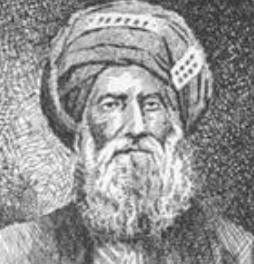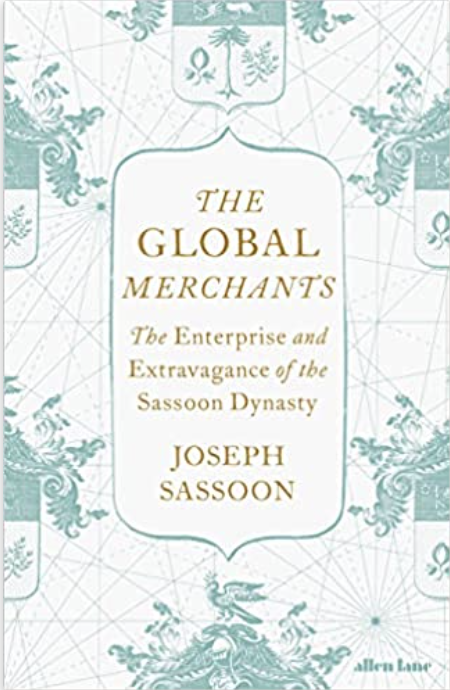
Rise and fall of the Sassoon’s from opium trade to the aristocracy


The Sassoons were one of the great business dynasties of the nineteenth century, as eminent as traders as the Rothschilds were bankers. Joseph Sassoon reveals the secrets behind the family’s phenomenal success, and how a handful of Jewish exiles from Ottoman Baghdad forged a mercantile juggernaut from their new home in colonial Bombay, the vast network of agents. Informants and politicians they built, and the way they came to bridge East and West, culturally as well as commercially.
One competitor said, Silver and gold, silks, gums and spices, opium, and cotton, wool, and wheat – whatever moves over sea or land feels the hand or bears the mark of Sassoon & Co.”
Flora, the first woman to steer a major global business, Siegfried, the poet, and Victor, the tycoon who drew the stars of Hollywood’s silent era to his skyscraper in Shanghai. Through the lives these ambitious figures built for themselves in London, Bombay, and beyond, revealing the captivating world of politics and power, innovation and intrigue, high society and empire.
The Global Merchants is an intimate portrait of a single-family and a panorama of the hundred and thirty years of their prominence, from the Opium Wars and opening of China to the American Civil War, the establishment of the British Raj to India’s independence, and the evolution of one of the defining forces of their age and the present: Globalization.
The Sassoons was once the mausoleum of one of the world’s richest dynasties, including the poet Siegfried Sassoon. Between the mid-19th and mid-20th centuries, these Sephardic Jewish refugees from Baghdad came to dominate business life in Bombay, build glittering towers in Shanghai, and host of London’s finest soirees. The riches although established on the notorious China Opium trade barely raised an eyebrow in Britain at the time. Ennobled by Queen Victoria, the Sassoons partied with royalty, sealed marriage with the Rothschilds, and threw money on charity, art, horse racing, and glamorous women. Even in the 1930s, they were still considered billionaires but by the 1950s they were a spent force.
Unlike Siegfried, the poet is not a descendant of the business dynasty, which fled Baghdad in 1830 to avoid Ottoman oppression. Joseph Sassoon’s family left only in the 1970s when he was a boy to escape Saddam Hussein. He had the crucial link with the merchant Sassoons, as well as a remote blood tie – knowledge of the obscure Baghdadi-Jewish dialect that the business family used in their correspondence to keep it secret, but gave Joseph access to an untapped trove of archival materials.
David Sassoon, born in Baghdad, who did not speak English, became a naturalised British citizen, kept his dress and manner of the Baghdadi Jews, even had Sassoon dock in Colaba, Mumbai named after him. David Sassoon, the business family’s founding father, was lucky in his thinking the globalisation of trade, the Industrial Revolution, and the rise of the British Empire all created huge opportunities and technological advances such as steamships, railways, and the telegraph.
David Sassoon with his eight sons and six daughters, had enough suitable boys to head operations in far-flung outposts and enough eligible girls to make useful marriages that count, to make the business spectacularly successful.
But the second generation, the two most dynamic brothers fell out and split the business – Abdallah ( later known as Albert) focused on India and England, while Elias concentrated on Shanghai and the east. Despite this trade prospered and the family wealth expanded. But the third generation of the descendants lost interest in the business and focused on their fabulous social lives.
While Rothschilds successfully managed the transition from migrants to Lords, the Sassoons littered their path with critical errors, as they were slow to diversify from opium, continuing to flood China with drugs that wrecked millions of lives, although opium remained legal in Britain as late as the first World War.
Victor the most flamboyant Sassoon of all, inherited his grandfather Elias’s business in the 1920s and concentrated on China to build a property empire in Shanghai crowned by the luxurious Cathay Hotel, rather than India as he thought nationalism and socialism would wreck India.
Eventually, Victor abandoned Asia, with the start of the communist revolution in 1949, and moved to the Bahamas and focused on pleasure, including his prized horses winning Derby four times. Victor failed to diversify and rebuild his father’s business.
The art of turning a personal operation into a corporation and tensions between entrepreneurial founders and professional advisers, and the risk of putting too many eggs in one basket, risks persist.
The Global Merchants: The Enterprise and the Extravagance of the Sassoon Dynasty by Joseph Sassoon, Allen Lane £30, 448 pages.
